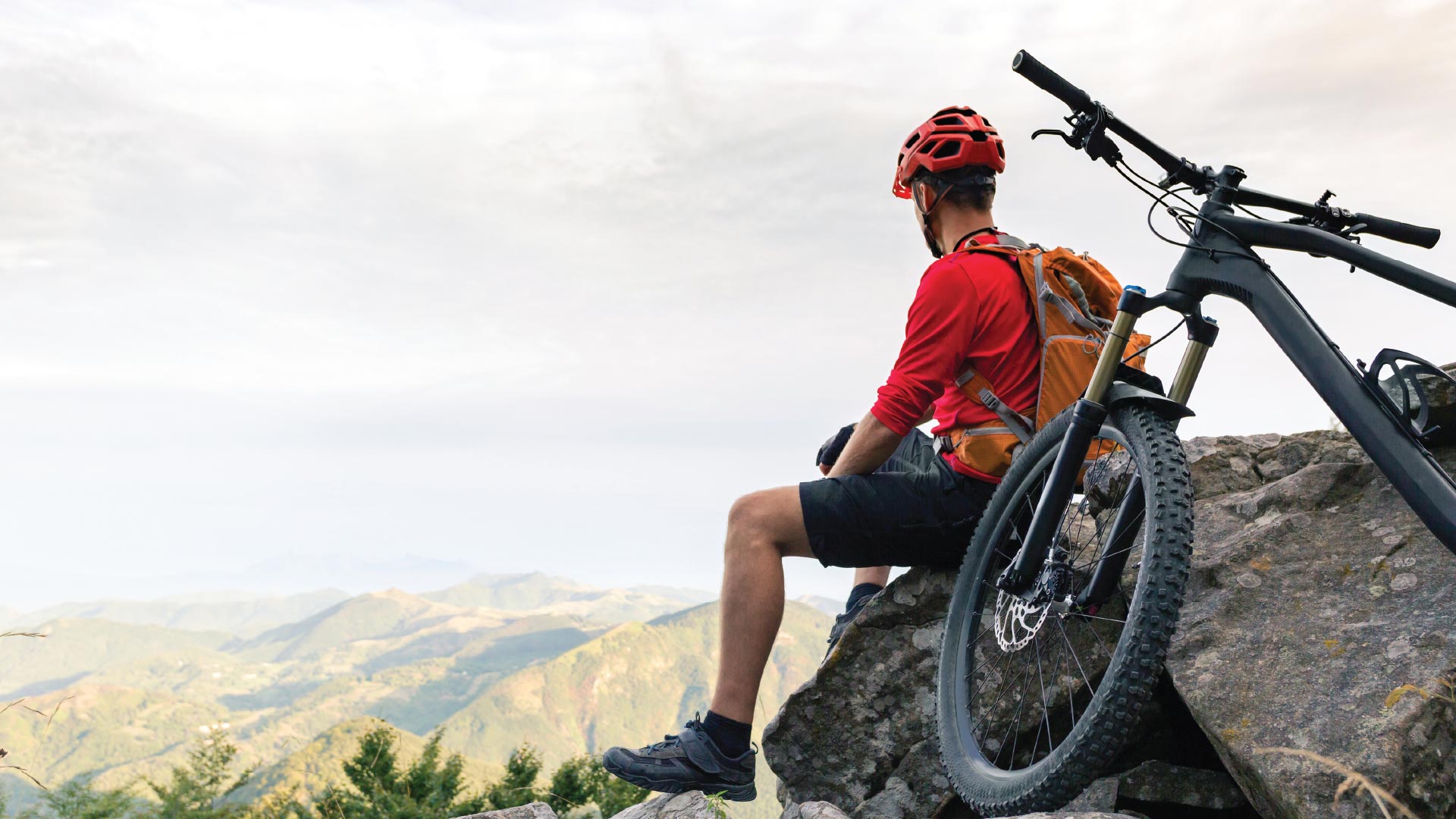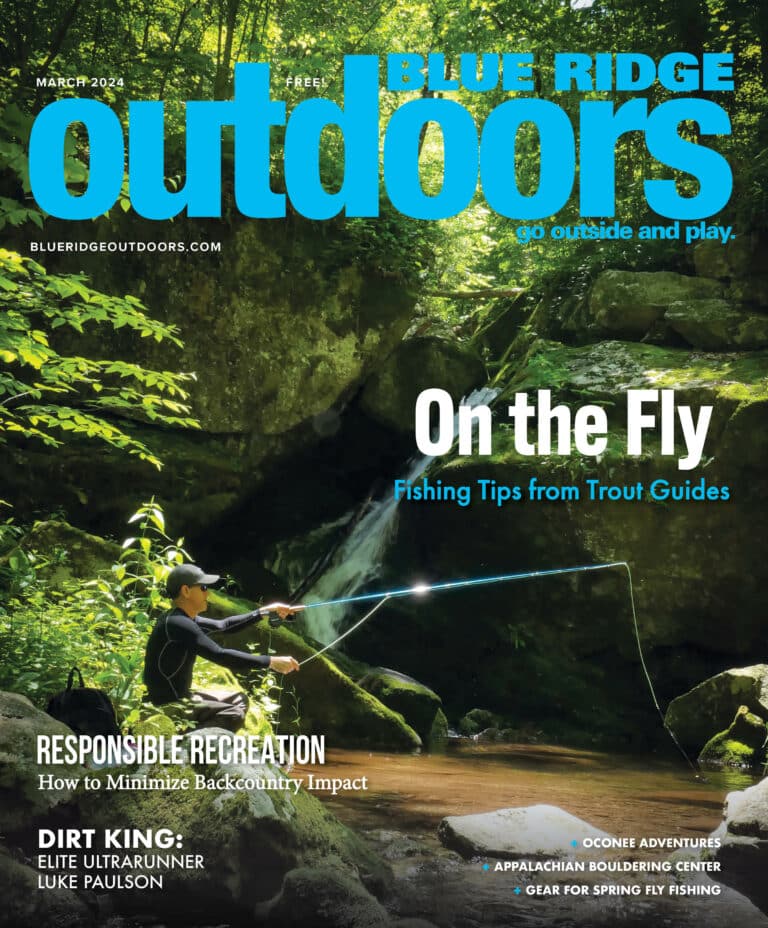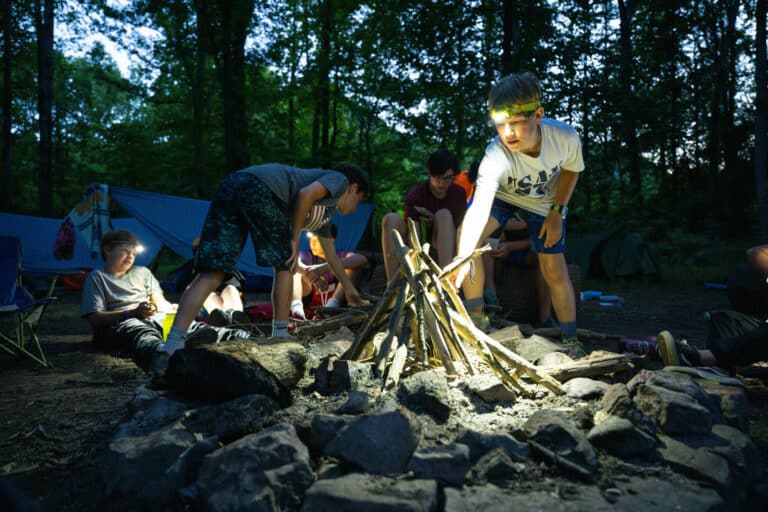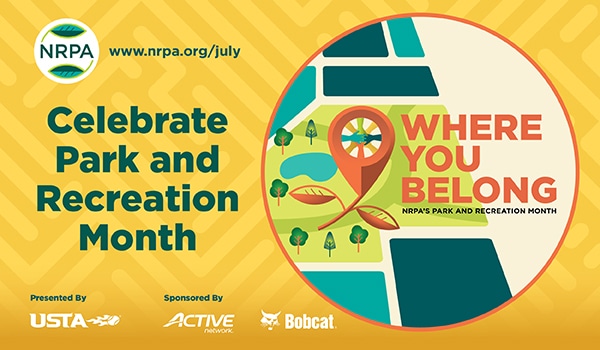The most dangerous part of your next outdoor adventure isn’t a bear, snake, or psychopath: it’s your ego. And the hardest part of your adventure isn’t the steep climb: it’s being okay with failure.
That means: just chill. Enjoy your ride, run, or ramble. Remember you are in the woods or on the water because you enjoy nature. Here’s what I’ve learned from many years in the saddle: Don’t get too caught up in proving yourself. Push your limits, be realistic, be willing to progress into new skills, and be mindful. Stay present.
“I really don’t think ego can survive in total presence,” says Stephens Farrell, an Asheville mountain biker and road cyclist. “Being present is a great way to box ego out, but if he can sneak in there, he will.”
Farrell learned this lesson the hard way recently while screaming down a steep mountain road at 35 miles per hour trying to beat his personal best on Strava. That’s when a squirrel dashed out in front of his wheel, resulting in road rash, bruised ribs…and a bruised ego.
“I just got flung onto the ground,” Farrell says. “Thank you, ego. Who’s gonna take care of you if you kill the host? I want to say I learned something from my experience…but I was obsessed with getting my personal best on each section. Nobody was with me. Who else was I racing? Ego!”
It’s okay to push yourself sometimes, but always remember why you’re outdoors in the first place.
“When I’m in the woods, it provides a tranquil setting for me to be in a quiet place of reflection,” says Trey Thomas, a local mountain biker who works at Industry Nine. “When you’re trying to one-up, rather than being content and appreciative of that quiet space or just being with your friends, and feel you have to prove yourself and show how cool you are, that’s when you get hurt. That’s when mistakes happen.”
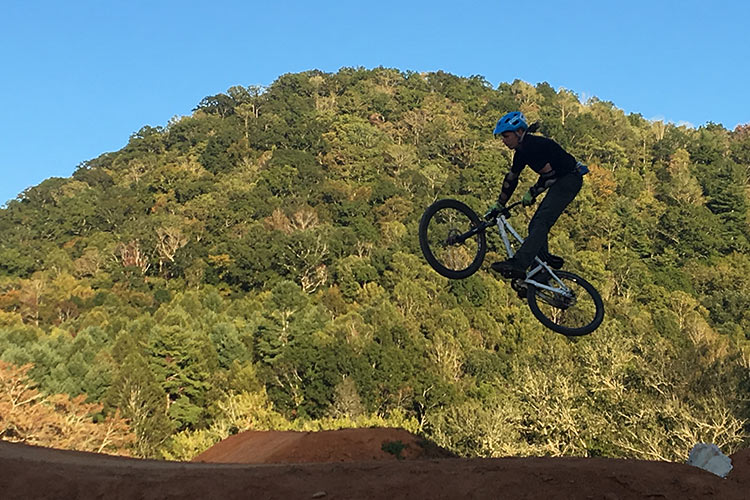
Anxiety and shame—drop them. To cover their ego’s vulnerability, people say things out loud like, “I haven’t been riding much lately”…”I can’t afford to hurt myself”…”I’m really hungover”…”I’m old”…”something is wrong with my bike”…”My wheels aren’t as big as yours.”
“They’re being insecure of their own skills,” says Thomas. “They’re afraid of failing, and the company they’re keeping become aware of their insecurities as a rider.”
What’s more embarrassing than not keeping up is making excuses for not keeping up. Truth is, the better the rider, the more inclined they are to kick everyone’s rump from the jacked up saddle of a 35-pound Huffy on its metal rims. Buying an expensive bike does not make up for lack of skill.
Competition is a biological drive. It can be fun. It pushes us, it makes us better, and it feeds our insecurities. But also be mindful and aware of any dark secrets spurring it.
The most dangerous boater on the river is the one who thinks he has to prove his knowledge and skills. This guy isn’t taking in the magical mists on the river. He doesn’t notice the soaring osprey. He is only concerned with how knowledgeable and flawless he appears to others.
“Ego will only get you in trouble with Lady River,” says raft guide Dan Caylor. “It’s all fun and games until you take that one scary swim, and then you can understand what the river can really do to you.”
Randy Manuel, an EMT and Wilderness First Responder instructor, says many people who are rescued from the woods often underestimated the adventure—or themselves. They attempt an A.T. thru-hike without ever having spent the night in the woods before. Or they have never learned to properly poop in the woods and end up sick.
Learn to laugh at yourself when you fail or suck. Know when to say enough so you don’t get sloppy and hurt yourself. Ask how to do it better. If you see somebody hit a five-foot drop, marvel, but if you’ve never tried it before, start off with learning bunny hops over small logs or maybe a one-foot drop. Enjoy being in the woods moving your body and doing something fun with your friends.
Truth is, no matter how great we are, there is always somebody better. It’s okay.
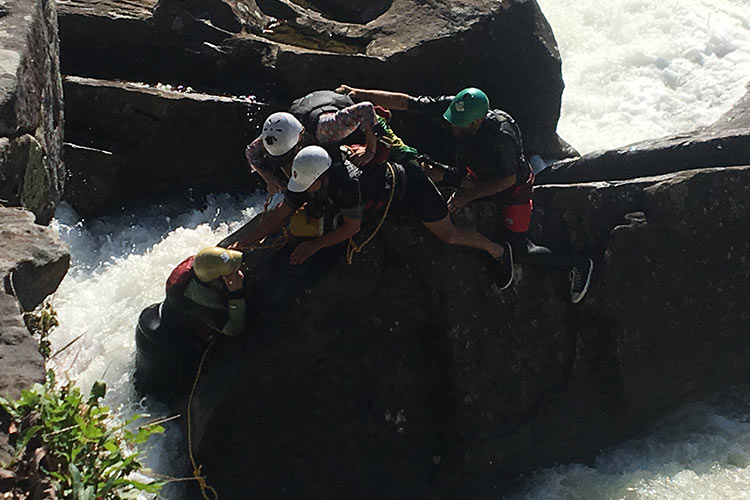
So how can we lose the ego? Here are a few hard-earned hints:
Stop and smell the roses. Your friends will wait for you at the next intersection.
Find your pace and be willing to learn new skills patiently.
Prepare yourself physically and mentally, so you can be more fully present and less focused on your fitness or limitations.
When people with more experience offer advice, humbly thank them and ask more questions. Riding, running, climbing, hiking, and paddling with friends who possess better skills and stamina is a great way to get better quickly, but you also have to ask ego to take a back seat so that you can outwardly admit the truth: I’m not as fit as you are. I’m not as skilled as you are. I’m not as experienced as you are.
Be willing to make mistakes. Be okay with fumbling around in an effort to learn something new.
